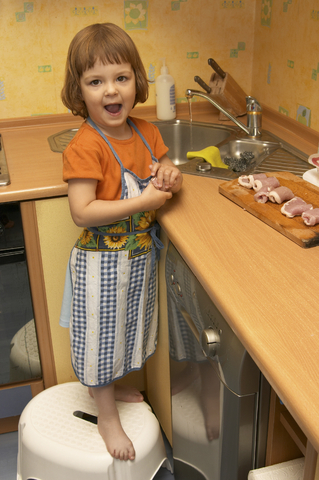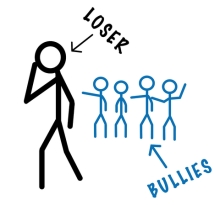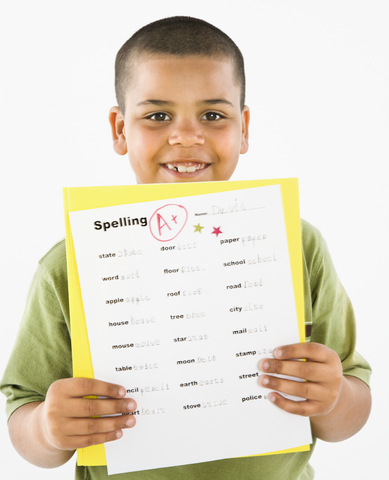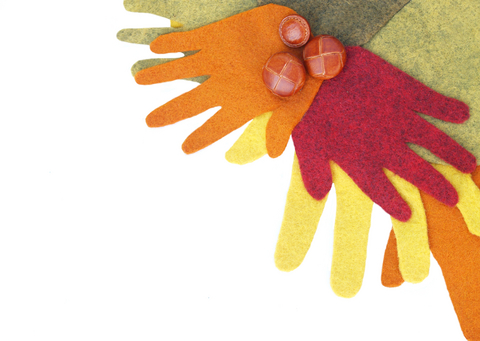Have you ever wondered why your child seems better behaved for one person than they are for another?
Or why does your child conform to expectations at school much better than he/she does at home for you?
It happens all the time, mom can’t get her child to take a nap, but every day at pre-school the teacher manages to get 20 small children to lie down at the same time. Is it a phenomenon? Or can it be explained?
I believe it can be quite simply explained in 2 words: Cause and Effect.
Child-Care professionals understand the need to introduce the concept of ‘consequences’ to very young children. Once a child understands that there are consequences to the choices they make, most of the time they will choose well. So for example when it comes to nap-time, the children know that if they lie down for a little while, they will then get to play with something special, or they will have a treat and their teacher will be really happy with them….the payoffs to them are numerous and irrefutable. They will see that for those children who chose not to nap, they will miss out. Most children clearly understand ‘cause and effect’ when the adults in their life have clearly linked the consequences of their choices to the outcomes that they receive.
No matter how irrational your child seems, they truly do understand the language of Cause and Effect.
Humans, no matter how young simply do not do things for which there is no evident payoff. It will make daily life a lot easier for you as a parent, if you learn to talk to your child in terms of choices and consequences. If you make it clear what will happen if they do one thing and what will happen if they do another, then they will usually choose the outcome that they want and will surprise you by the degree of commitment they can show to that outcome.
If your child does not lie down and take a nap when you know they need to, then that can be explained by the fact that your child doesn’t see what the payoff is.
When it comes to payoff, there really does need to be some emotional payoff as well. Going back to the pre-school example, you will notice that the outcome for napping was not just a treat or something special. It also includes that the teacher is very happy with them. The teacher will smile a lot at each child, pat them lovingly on the back, shoulder or head and will instinctively make sure each child knows they made a good choice…and that people are proud of them. The teacher may boast about them to other adults and tell their mom and dad how wonderful they are and how they always nap well like it is some really big achievement.
I know this because I know the payoff for the teacher is that more of the children will nap well and so the day will be a better one. Cause and Effect!
So no matter how old your child is, make sure you are arranging your child’s world so that it is clearly a series of choices each with different outcomes and that you are helping your child see what the payoff is to them, in language they will understand. When they make a poor choice and the ‘effect’ is not what the child wants, let them learn from that. Don’t save them all the time. Let your child forego a nap or whatever but then make sure that they see that when they don’t nap, they are tired and cranky and that playing isn’t as much fun for the rest of the day. Help them see that now, because they didn’t nap, they cannot go to the park or stay up and watch their show on television. Let them see that they chose that and that next time they might want to make the other choice. Show them what the ‘effect’ would have looked like had they made the other choice. That they would now be able to stay up, that they would not be feeling so out of sorts with everyone and everything if they had had that nap.
Then next time when they have to choose to nap or not, help them remember the way they felt when they made the choice not to nap last time. Help them connect the choice they have to make right now, with the ‘effects’ they have suffered in the past. Remember that they need you to always connect the dots for them.
This applies to almost all the things that fill up your child’s day…not just to napping.
I am sure you have stories about times your child had a lesson in ‘cause and effect’, or you have some situations you would like some help bringing into a ‘cause and effect’ understanding for your child. If you want to share some of your ideas, stories or want some suggestions about how to word some of the choices positively, then please feel free to leave a comment on this blog post and I will answer you and I am sure some other parents will also bring their experiences to light. Sharing what we know works for the sake of our children, in this very quickly changing world. That’s what modern parenting is all about.
So talkback with me on the subject of ‘cause and effect’. I want to hear what you have to say.
Warmest Wishes,
Vicki Jardine



 This week I was fortunate enough to witness a father’s love for his child and how that love inspired the child to achieve more than ever before. How beautiful to see the look of security and self-pride in the eyes of this child as his father gave gentle and loving encouragement, believing wholeheartedly in the child. It was not a case of an amazing feat of fatherly love like that of Dick Hoyt to his son Rick. (If you haven’t seen the tribute to Rick and Dick Hoyt, just go to
This week I was fortunate enough to witness a father’s love for his child and how that love inspired the child to achieve more than ever before. How beautiful to see the look of security and self-pride in the eyes of this child as his father gave gentle and loving encouragement, believing wholeheartedly in the child. It was not a case of an amazing feat of fatherly love like that of Dick Hoyt to his son Rick. (If you haven’t seen the tribute to Rick and Dick Hoyt, just go to  Practically every parent I speak to experiences the ‘after school shutdown’. This is when you ask your child about their day only to get one-word answers. You ask how their day was and you get …. ‘good’. You ask what they studied and you get…. ‘nothing’. After a couple of attempts to draw your child out into a conversation, you give up and everyone feels better.
Practically every parent I speak to experiences the ‘after school shutdown’. This is when you ask your child about their day only to get one-word answers. You ask how their day was and you get …. ‘good’. You ask what they studied and you get…. ‘nothing’. After a couple of attempts to draw your child out into a conversation, you give up and everyone feels better. I have been working with some quite privileged children lately. Well they are privileged in some ways. They are paupers in other ways.
I have been working with some quite privileged children lately. Well they are privileged in some ways. They are paupers in other ways. This week I was with a wonderful 8 year old girl who got the best report card and I went with her to her ‘Open House’ at school. Her teacher praised her so highly and this little girl showed me all her work which was laid out neatly on her desk. I was so proud of what I was seeing in this little girl.
This week I was with a wonderful 8 year old girl who got the best report card and I went with her to her ‘Open House’ at school. Her teacher praised her so highly and this little girl showed me all her work which was laid out neatly on her desk. I was so proud of what I was seeing in this little girl.

 Each year we all look forward to Thanksgiving Day.
Each year we all look forward to Thanksgiving Day. Stumble It!
Stumble It!
Recent Comments